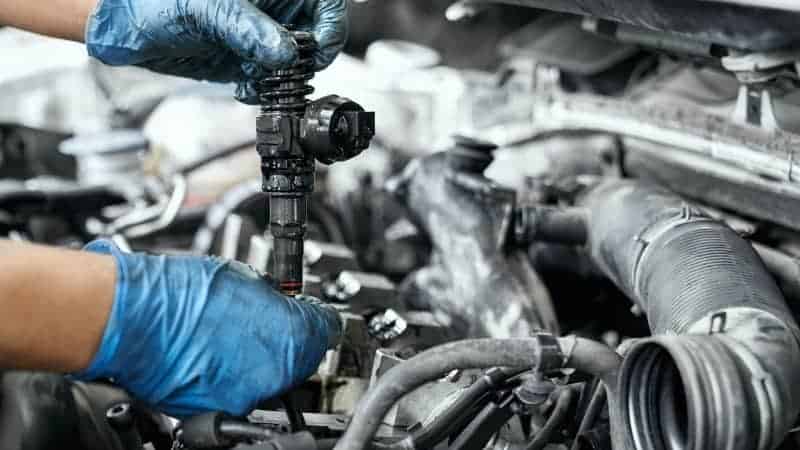If you want to avoid the most aggravating thing that can happen, avoid having an engine misfire. However, for whatever reason, they will inevitably happen in every engine. When an engine misfires, how does it feel? What triggers the misfiring of a cylinder? What are the signs of an engine misfire?
Will an engine misfire still happen? What does it signify for the condition and security of your car? In this article, we will address all of these concerns and more, including the symptoms, causes, diagnosis, and solutions to engine misfiring.
Why Does an Engine Explode?

In order to remedy the problem and prevent it from happening again, it is necessary to understand what causes misfiring engines. What causes an engine to misfire? Let’s examine this question carefully.
- A lousy ignition coil or Distributor
- Lousy Spark Plugs
- Bad injectors
- Low fuel pressure
- Low compression
- Intake manifold leaks
Signs of an Engine That Is Misfiring
You should be aware of a few signs before we go into analyzing your vehicle for a misfire.
- Engine warning light
- Rough idle
- Slow Acceleration
- Rough acceleration
- Change in Engine Sound
- Engine Vibrations
Reasons why cylinders could misfire
Aside from the reasons we mentioned before, there are a few other things that might cause cylinder misfires in a gasoline engine. I will go over them briefly. Although some of these causes may appear commonplace, you should be cautious. It can be a simple fix that is backfiring.
- Lousy valve cover seals
- Water in fuel lines
- Water in fuel lines
- Bad PCV valve
- Water in the spark plug tubes
Issues with Spark Plugs and Engine Flare

Nothing can light the gasoline in the combustion chamber unless the spark plugs are in good working order. An internal combustion engine cannot function without spark plugs. Spark plugs are engineered to release an electrical signal at a set interval from an ignition coil or distributor, which ignites the air-fuel combination in the combustion chamber. When installing spark plugs in a vehicle, manufacturers always specify a certain spark plug gap size. In contrast to poor spark plugs, which may not even generate a single spark, high-quality spark plugs will ignite the fuel with ease.
- Slow acceleration
- Poor fuel economy
- Engine misfiring
- Hard starting.
The Art of Engine Misfiring Diagnosis and Repair

Now that we’ve covered the various reasons why engines misfire, I’ll show you how to correct them. I suggest you take these procedures if you are unsure of what caused the misfire.
- Pull the trouble codes
- Analyze the codes
- Check ignition
- Check for intake manifold leaks
- Compression Test
- Check fuel delivery
Avoiding Engine Misfire
Referring to the owner’s handbook for recommended maintenance is one of the best strategies to avoid cylinder misfires.
Get the engine tuned up to the factory specs. In order to rule out any potential issues with the newborn that could have caused a misfire, a yearly diagnosis is necessary.
Never refill your gas tank without first tightening the gas lid. This can assist in preventing issues with the EVAP system.
To assist keep corrosion on system lines to a minimum, apply rust prevention.
Any caution light that is on should always be carefully observed. Ignoring a minor problem could lead to its eventual escalation into a much larger one.
When caring for the well-being and security of your vehicle, don’t be stingy with your spending. Regular system maintenance and tune-ups, as outlined in your owner’s manual, will keep your engine running smoothly. Premature system failures can be prevented with this method.
At 30,000 miles, have the fuel system checked up by an expert. Carbon buildups, the EGR system’s worst adversary, will be kept at bay by this.
Conclusion
Engine misfire can be caused by a number of things, although cylinder problems are the most common. Still, you have also seen a number of simple procedures for identifying and resolving misfire problems. Switching out the spark plugs, ignition coils, and wires requires careful attention and attentive listening. It is advisable to seek professional help if you do not feel competent enough to identify and resolve engine misfiring problems on your own.





